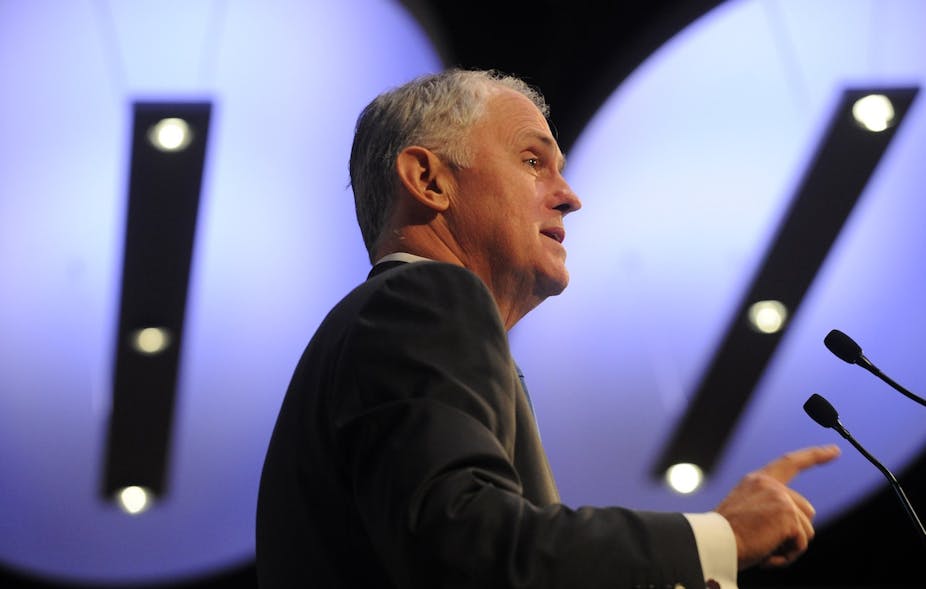Communications Minister and internet evangelist, Malcolm Turnbull, says media deregulation is off the agenda for now and he’s in no rush to remove the remaining media ownership rules.
The reason for the delay, according to Turnbull, is the lack of consensus among Australia’s media moguls. No doubt he regrets not being in a position to create headlines that would announce ditching the final diversity safety net, which he sees as anachronistic, and not sufficiently mogul-friendly.
Turnbull told The Australian:
“The world is not going to come to an end if ownership laws remain the same for a period, but we are a reforming government, a deregulating government. We believe that the flowering of the internet creates the opportunities for less regulation and more freedom.”
This is not the kind of news that Nine Entertainment and Fairfax Media wanted to hear, given speculation about their imminent A$100 million video-on-demand streaming deal.
After participating in a series of backroom ownership discussions led by Turnbull in recent months, the two traditional big media companies will now have to put any speculated upon plans to merge on the backburner. At least until such time that all the major media owners are within the same tent.
Until the media ownership laws can be repealed, the two out-of-three diversity rule currently prevents Fairfax Media from owning more than 15% of Nine Entertainment. As usual with this critical area of public policy, the silence is deafening, and there’s a glaring lack of public consultation on the asserted benefits of repealing these voice diversity maintaining rules - or any updated rules to replace them.
Entertainment rules
At the same time, in the news media industry, the line between “church” and “state” is now frequently being smudged out. Think native advertising and other forms of paid-for content, which tend to not be transparent to audiences. Indeed, the quest for new sources of revenue means news media organisations are hastily pursuing alternative arrangements and searching for suitable dance partners. The well-tested “news as entertainment” model is an old favourite, and video-hungry audiences are reason enough to sidle up to a partner with the necessary content production and acquisition deal acumen.
As well as describing News Corp as “feudal”, former New Corp Australia CEO Kim Williams told ABC’s Lateline program on Monday night that all print media organisations “need to radically reinvent themselves” to survive the downward spiral of traditional print media business models. Commercial free-to-air is in a not dissimilar place, judging by recent lobbying efforts to increase the limit on “non-progamming matter” (better known as advertising content) to 20 minutes per hour. Again, a lack of consensus among the networks has put the brakes on that proposal, with Network Ten rather sensibly suggesting audiences might be not be so completely thrilled by the idea. But these pressures for changing business models explain the mooted Nine-Fairfax Media streaming service and potential cross-platform merger.
The rise and rise of streaming TV
Such developments represent a recurring global narrative about another fundamental media trend: the rise and rise of on-demand video internet protocol based businesses, as seen in local brands Quickfix, FetchTV and Foxtel’s Presto, and US brands Google Chromecast, Amazon Instant TV, Apple TV, Hulu and Netflix.
Netflix has announced its intention to extend its business to Australia in 2015. The new business reality of television is that internet protocol TV has emerged from the early 2000s as a competing delivery infrastructure to HD digital terrestrial, satellite, cable and mobile TV systems. There are a wide variety of subscription and pay-per-view mechanisms and strategies, that also compete with different catch-up services.
When Gil Scott Heron wrote the “Revolution will not be televised…it will be live” he was critical of the apathy that mediatisation engenders: but the now decades-long expectation that television would be predominantly delivered over the internet has well and truly arrived.
Let’s go, Stream Co
The timing of an anticipated announcement by Nine Entertainment and Fairfax Media of a $100 million streaming joint venture to create an on-demand video service “Stream Co” is happening in the context of a series of well sign-posted video marketplace events.
First, Foxtel has recently halved the cost of its Presto movie streaming prices from A$19.99 to A$9.99 month amid speculation it has struggled to win subscribers, and which now puts it at the same price point as Netflix and Quickflix.
Second, Foxtel at the same time is reported to be in advanced joint venture talks with Seven West Media (one of the media companies said to be outside Turnbull’s media deregulation tent).
Nine Entertainment has also made a modest investment in its struggling competitor streaming company, Quickflix. The $1 million bought them 83 million preference shares that were previously owned by content partner HBO. This investment has the hallmarks of a strategic investment by Nine in a sector which it clearly has longer term designs on.
In the background, the on-again, off-again, Freeviewplus seems hobbled by limited availability technology requiring a Hybrid Broadcast Broadband TV (or HbbTV) compatible TV or PVR, and the same free streaming catch up content that’s already available on free-to-air, not premium content movies.

